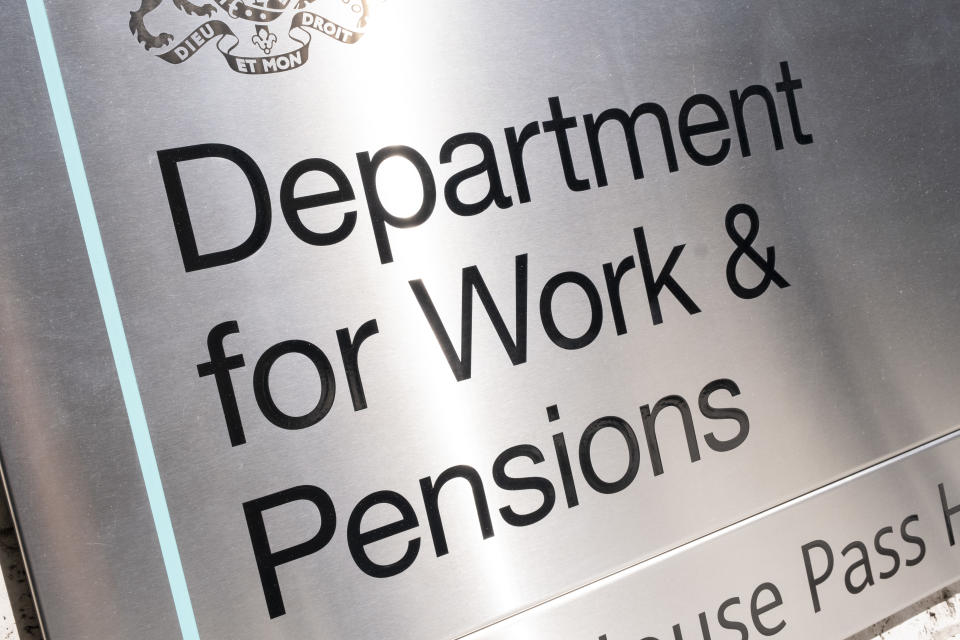A disability rights charity has said the government’s crackdown on benefits is an “expected scandal” similar to the Post Office Horizon IT system disaster.
The government this week updated its ‘fraud plan’ for the welfare system, announcing £70m of funding for ‘deeper data analytics and new data sources to prevent fraud’.
This will be used in conjunction with the Data Protection and Digital Information Bill, which aims to give the government “better access to vital data held by third parties such as banks” to detect fraud.
As well as privacy concerns, Disability Rights UK warns that an “unaccountable digital system” could lead to claimants’ bank accounts being mislabeled, meaning they could temporarily lose access to vital benefits.
The Department for Work and Pensions (DWP) is already using machine learning – from 2021/22 – “to flag potentially fraudulent claims for Universal Credit”. The NHS said this creates “an inherent risk that algorithms are biased towards selecting claims for consideration from certain vulnerable people or groups with protected characteristics”.
Disabled Rights UK said the spread of fraud detection to bank accounts could lead to a situation comparable to the Post Office scandal, where a faulty Fujitsu Horizon IT system made it appear that its branches were missing money. This resulted in 700 deputies being prosecuted and convicted between 1999 and 2015.
The DWP, which claims it saved £1.3bn last year by tackling benefit fraud and error, dismissed the comparison as “completely wrong” and said staff would “always” make decisions about benefit suspensions .
But Mikey Ehrhardt, UK Disability Rights Officer, told Yahoo News UK: “The reason this is similar to the Horizon scandal is because of the reliance on automation, digital systems, unaccountable technology and algorithms.


“When someone is flagged in the system, it can take a long time [a staff member] to keep an eye on it.’
More than 20 million people need help in the UK, including 3.3 million who need Personal Independence Payment (PIP), which is designed for people who need help with everyday activities or getting around because of a long-term illness or disability.
Ehrhardt continued: “To scan 20 million bank accounts, which is roughly the size and scope of this, and you have an error rate of, say, 1%, that’s 200,000 people’s accounts flagged by the Department for Work and Pensions. He doesn’t have the personnel authority to monitor it.
“There will be a lot of people’s accounts mislabeled, which means it’s likely that their support will stop until staff can assess whether it’s genuine [correct].
“That’s why we’re so concerned about it, it’s a digital system that’s not accountable, just like Horizon. We don’t know how it’s designed, we don’t know anything about the system they use.
“It needs to be made clear that there is no way to make something like this safe… because there will always be mistakes… which can put people in incredibly stressful circumstances. The PIP process is already incredibly difficult to go through.’
“Scandal in waiting”
The MS Society reported that 65% of applicants report that the application process has a negative or very negative impact on their physical and mental health.
Ehrhardt added, “Trying to create a group of [claimants] less and less, using an unaccountable digital system to achieve this… it’s a scandal waiting to happen.
“The best we’re seeing is mutterings about security and recommendations, but I’m sure when Fujitsu was selling the hardware to the post office there was talk of how robust the system would be.
“But there is no way to make this kind of digital surveillance secure.”
A DWP spokesman replied: “This is a completely wrong comparison.
“Under these rules, the employee will always make any decision related to the suspension of payments, and any signals of potential fraud or error will be thoroughly investigated before action is taken.
“We have a duty to be responsible with taxpayers’ money, which is why we are cracking down on fraud, backed by our £900m fraud plan to strengthen our anti-fraud operations and root out those who steal from the most vulnerable.”
“DWP forces thousands of carers into debt”
A senior MP this week called on the DWP to “take control” amid overpayments to carers which have left many unwittingly racking up debt.
The chairman of the Work and Pensions Committee, Sir Stephen Timms, said the government had “allowed” many unpaid workers to run up debt knowingly over the years.
A DWP research report, written in 2021 but only published this week, said 3% of a sample of claimants were overpaid for Carer’s Allowance. With around 1.3 million people receiving benefits, the Carers Trust said this could equate to tens of thousands of people being overpaid.
Timms said: “The Government has known for years about the flaws plaguing the carer benefits payment system, but has just allowed many unpaid carers to unwittingly accumulate unmanageable levels of debt.
“The DWP must now act without delay to deal with the problem and ensure that carers are no longer subjected to the suffering that such overpayments can cause.”